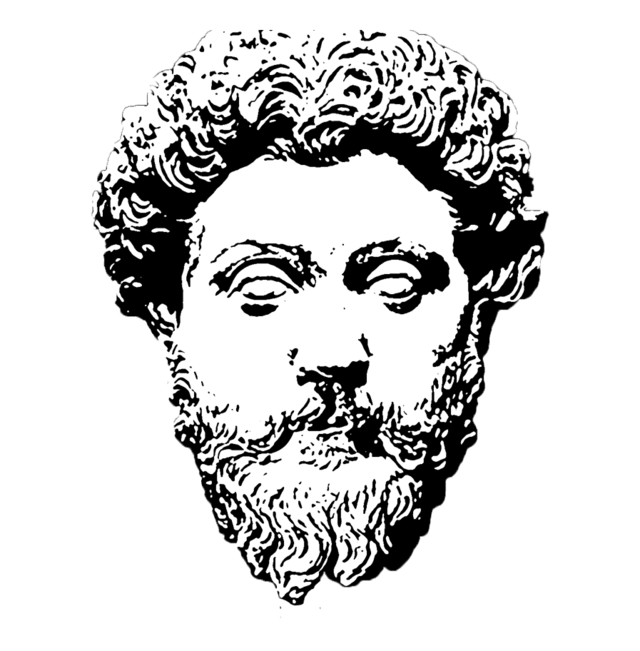Marcus Aurelius, born in 121 CE in Rome, is often remembered as the philosopher-emperor, a rare blend of power and wisdom in the ancient world. His life is a fascinating study of leadership under immense pressure, the practice of Stoic philosophy, and the legacy of a ruler who valued virtue over glory. Raised in a prominent Roman family, Marcus Aurelius was groomed from an early age for greatness. His education was overseen by some of the best teachers of the time, and among them was the Stoic philosopher Epictetus, whose teachings deeply influenced Marcus’s approach to life and governance.
When Marcus ascended to the throne in 161 CE, following the death of his adoptive father, Antoninus Pius, the Roman Empire was experiencing both its height and the beginning of its decline. It was a vast empire, stretching from Britain to the Middle East, and it was plagued by external threats and internal strife. Despite these challenges, Marcus Aurelius is remembered for his commitment to duty and his Stoic calm in the face of adversity. He ruled during a period marked by wars, plague, and political unrest, yet he remained steadfast in his responsibility to the empire.
Marcus is perhaps best known today not for his military conquests or his governance but for his Meditations, a series of personal reflections that he wrote during his campaigns. These writings were never intended for publication but were more of a personal diary, where Marcus wrestled with the challenges of life, leadership, and his philosophical beliefs. Written in Greek, the language of philosophy at the time, the Meditations offers a window into the mind of a ruler who constantly sought to live according to the principles of Stoicism—accepting the world as it is, focusing on what is within one’s control, and maintaining virtue in all circumstances.
Throughout his reign, Marcus Aurelius faced multiple wars on the frontiers of the empire, particularly against the Germanic tribes in the north. Though he was a philosopher by nature, Marcus was also a capable military leader, personally leading his armies and spending much of his reign on campaign. Despite his philosophical leanings, he understood the necessity of military action to protect the empire and was willing to make difficult decisions to preserve Roman stability. His military campaigns, while not always victorious, demonstrated his resilience and commitment to duty.
The Antonine Plague, which ravaged the empire during his reign, presented another significant challenge. The plague killed millions and strained the resources of the state. Marcus’s handling of the crisis was marked by his Stoic pragmatism; he did not allow panic or despair to influence his decisions, instead focusing on managing the crisis with the resources at hand. His leadership during this period solidified his reputation as a ruler who put the well-being of the empire above personal concerns.
Marcus Aurelius’s reign was also significant for its emphasis on justice and fairness. He worked to improve the legal system, ensuring that laws were applied more consistently across the empire. His concern for the welfare of the poor and his efforts to curb corruption within the government reflected his belief in the importance of duty, morality, and the common good. These qualities set him apart from many of his predecessors and successors, whose reigns were often marked by excess, cruelty, or indifference to the populace.
However, Marcus’s decision to appoint his son Commodus as his successor remains a blemish on his otherwise exemplary legacy. Commodus’s reign would later be characterized by misrule and debauchery, and it marked the beginning of a period of instability and decline for the Roman Empire. Despite Marcus’s attempts to guide his son, Commodus did not inherit his father’s sense of duty or virtue, and the empire suffered as a result.
Marcus Aurelius’s impact extends far beyond his reign. His Meditations have inspired countless readers over the centuries, from philosophers and political leaders to ordinary individuals seeking guidance in their own lives. His Stoic principles, particularly his emphasis on self-control, duty, and the acceptance of life’s hardships, continue to resonate today. Marcus’s life stands as an example of how one can navigate power, responsibility, and adversity with integrity and wisdom.
In the end, Marcus Aurelius is remembered not only as a great Roman emperor but as a philosopher whose thoughts on life and leadership transcend time. His ability to balance the demands of ruling a vast empire with his personal commitment to virtue and Stoic philosophy makes him a unique and compelling figure in history. His legacy as a philosopher-king remains one of the most enduring examples of wisdom in leadership, reminding us of the power of thoughtful governance and the importance of maintaining one’s principles, even in the most trying circumstances.

